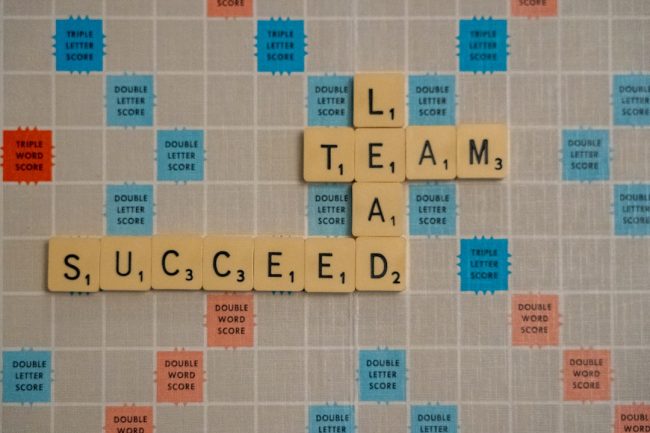Using Games to Promote Learning and Development at Designing Digitally, Inc. We are aware of how quickly the field of learning and development is changing. As experts in this area, we are always looking for new & creative ways to involve students and improve their experiences. The use of games in training programs has been found to be one of the most successful approaches.
We’ll look at a number of ways that games can improve learning, from cost-effectiveness to engagement, in this post. It’s simple to understand why many students find it difficult to stay interested when we consider conventional training techniques like slide shows and lectures. On the other hand, games have an engagement factor by nature that draws players in and maintains their interest in the subject matter. At Digitally Designing, Inc. We understand that games provide immersive settings in which students can investigate ideas in a dynamic manner.
Games’ interactive features promote active engagement, which is essential for staying focused. Also, games frequently include components like challenges, rewards, and storytelling that appeal to our natural drive for success. By incorporating these components into our training courses, we can craft a more engaging story that captivates students.
This keeps their interest throughout the learning process in addition to helping to capture it. To keep students engaged and motivated, we give these engagement factors top priority when developing our training programs. A key component of successful training is experiential learning, and games offer the perfect setting for this strategy.
At Digitally Designing, Inc. For skill development, we think practical experience is crucial. Through games, students can apply their theoretical knowledge in a secure setting where they can try new things and learn from their mistakes without facing repercussions in the real world. Games allow us to create realistic scenarios that reflect the difficulties employees might encounter in their jobs through role-playing and simulations.
As students work through a variety of scenarios, this experiential learning not only improves comprehension but also boosts confidence. We enable employees to acquire vital skills that are immediately relevant to their jobs by integrating game-based learning into our programs. The immediate feedback that game-based learning provides is one of its biggest benefits. At Digitally Designing, Inc. We recognize that effective learning requires prompt feedback. In traditional training methods, feedback can often be delayed or vague, leaving learners uncertain about their progress.
On the other hand, games offer instantaneous evaluations that let students know how they’re doing. In addition to assisting students in identifying areas for growth, this instantaneous feedback loop also serves to reinforce positive behaviors. Employees are more confident and motivated to keep aiming for excellence when they receive immediate recognition for their accomplishments in a game.
We can develop a more adaptable training environment that encourages ongoing development by utilizing this feature of game-based learning. Any learning endeavor must consider retention, and studies have demonstrated that game-based learning greatly improves long-term memory retention when compared to more conventional techniques like slide decks. At Digitally Designed, Inc. We understand that students are more likely to retain the material when they are actively participating in a game. Repetition and reinforcement are frequently used in games in a way that is fun and feels natural. We can assist students in better internalizing information by incorporating important ideas into gameplay mechanics.
Also, the emotional bonds made while playing a game can improve memory retention even more. Our goal when designing our training programs is to provide learners with unforgettable experiences that will last a lifetime. Any training program’s success depends heavily on motivation. Within Designing Digitally, Inc.
We have found that playing games makes students more intrinsically motivated. Games add a fun and challenging element that motivates learners to participate voluntarily, in contrast to traditional training methods that may feel required or boring. The competitive aspect of games can inspire a drive to succeed.
Employees feel a sense of accomplishment as they advance through levels or receive rewards, which inspires them to keep learning. We foster an environment where employees are motivated by their own drive to succeed rather than by outside pressures by integrating game mechanics into our training solutions. The flexibility of game-based learning is one of its outstanding qualities. Within Designing Digitally, Inc.
We are aware that each student has distinct learning preferences and styles. Games can be modified to account for these variations, guaranteeing that every worker has access to productive training opportunities. Games can be made to engage different learning modalities through kinesthetic interactions, auditory cues, or visual storytelling. Because of this customization, we are able to develop inclusive training programs that appeal to a diverse workforce. We can increase the overall efficacy of our training programs by identifying and accommodating each person’s preferred method of learning.
In the modern workplace, teamwork is crucial to success. At the company Designing Digitally. We think that games can help employees communicate and work together in ways that traditional training techniques can’t. A lot of games encourage players to cooperate in order to achieve shared objectives.
Employees learn how to share ideas, communicate effectively, and help one another overcome obstacles through cooperative gaming. This fosters a culture of cooperation within the company & improves relationships between team members. We can improve interpersonal skills and foster a sense of unity among employees by incorporating team-based games into our training programs. Lastly, let’s talk about the cost of game-based learning.
At Digitally Designed, Inc. We understand that businesses are constantly searching for methods to optimize the return on investment (ROI) of their training programs. Game-based learning often proves to be more cost-effective than traditional slide deck training methods. The long-term advantages of producing captivating game content greatly exceed any upfront development costs.
Games tend to require less time for learners to grasp concepts fully, leading to quicker onboarding and reduced training time overall. Also, employees are less likely to need repeated training sessions on the same material because of the higher retention rates linked to game-based learning. Finally, as learning and development specialists at Designing Digitally, Inc.
In our training programs, we are dedicated to utilizing the power of games. The advantages of game-based learning are indisputable, ranging from drawing students in & encouraging practical experience to offering prompt feedback and improving retention. By adopting this cutting-edge strategy, we can produce training programs that are both effective and engaging, empowering staff members & promoting organizational success.













